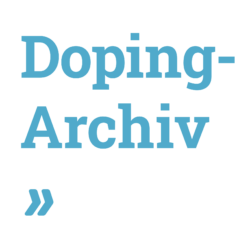Doping und die UCI
Presse: Manifest für einen glaubwürdigen Radsport, 27.10.2012
Am 27. Oktober 2012 veröffentlichten fünf europäische Tageszeitungen ein gemeinsames Manifest für einen glaubwürdigen Radsport, in dem sie u.a. eine unabhängige Kommission unter Leitung der WADA fordern, welche die letzten 20 Jahre des Profiradsports unter die Lupe nehmen soll.
Die Zeitungen sind:
HET NIEUWSBLAD, LE SOIR, L’ÉQUIPE, LA GAZZETTA DELLO SPORT, THE TIMES
Het Nieusblad (sportwereld) beschrieb ein wenig den Entstehungsprozess der Resolution: Daarom ondertekent Het Nieuwsblad het Manifest.
Laut l’Èquipe waren an dem Diskussionsprozess der Resolution weitere Zeitungen beteiligt wie El Pais (Spanien), De Telegraaf (Niederlande), The Sydney Morning Herald (Australien) und die Süddeutsche Zeitung (Deutschland). Sie hätten die Ideen geteilt, würden es aber vorziehen, diese im Rahmen ihrer herkömmlichen Verlagstradition (dans leur cadre éditorial traditionnel) zu behandeln und zu verteidigen.
Die italienischen Teammanger Roberto Amadio (Liquigas-Cannondale) und Luca Guercilena (RadioShack-Nissan-Trek) unterstützten schnell den Appell:
cn: Team managers support the Manifesto for Credible Cycling.
Ob es weitere Reaktionen auf diese Initiative gab, ist mir nicht bekannt.
die englische Version des Manifests:
Today, renowned newspapers from around Europe are joining forces to call for immediate reform and a new future for professional cycling.
We are alarmed and deeply concerned by the grave situation facing this sport — and potentially all sports — in the aftermath of the Lance Armstrong affair, which has demonstrated the seductive and pervasive power of illegal performance-enhancing drugs. There is much to learn for all sports from the Armstrong experience.
The confessions by many of Armstrong’s former teammates, the shocking U.S. Anti-Doping Agency (USADA) report that revealed how deeply dysfunctional cycling had become, and the impotence and complicity of the International Cycling Union (UCI) are soon to be followed by the Padua investigation in Italy and, in January, the Operación Puerto trial in Spain.
These continuing revelations demonstrate to us that we can clearly no longer have confidence in the leadership or the effectiveness of the UCI or in the behaviors of team managers, many of whom are implicated in cheating, now and in the recent past.
The media shares some responsibility for this malaise. Some have battled the evils of doping, but others have not done enough. It is clear that in future we will need to be more vigilant, to ask tougher questions. But the principal responsibility lies with all those within the sport of cycling — governing bodies, sponsors, team managers, race promoters and athletes. That said, we do have the impression that things have got better recently. There is a new generation of riders and teams with a different, more open philosophy, who believe that change is possible.
So for their sakes and for the sakes of those who love cycling and who want to believe in it, we believe it is impossible to continue with the same structure, the same rules and the same leaders.
So today we ask for the following:
• The creation of an independent and neutral commission, under the responsibility of the World Anti-Doping Agency (WADA), to investigate the role of the UCI in the Armstrong affair and to report on any mistakes, abuses of power or complicity by the governing body.
• Drug testing structures on all professional cycling events should, from now on, be instigated by Wada and administered by the national anti-doping agencies.
• Penalties for doping offenses should become more severe; professional teams should not employ riders suspended for more than six months for a supplementary period of two years.
• The universal acceptance among all teams that a rider implicated by a formal doping investigation is automatically withdrawn from competition, pending the outcome of that investigation.
• The clear understanding of shared responsibility among all sponsors for the ethical health of cycling and for the credibility of the teams that carry their name.
• The reform of the World Tour of leading races, of its systems of points and the awarding of team licenses, which encourages a closed shop, lacking in transparency and accountability; we propose that team licences are awarded to sponsors and not to team managers.
• The publication by the UCI of an annual report clarifying, in a transparent manner, all its activities and progress achieved each season.
• The undertaking that all of the above will be in place before the start of the 2013 season in order to establish a new and more credible structure and new governance and regulations.
die flämischen, französichen und italienischen Versionen
Het Nieuwsblad, sportwereld, Belgien:
Manifest voor een geloofwaardige wielersport
Le Soir, Belgien:
Manifeste pour le cyclisme
L’Équipe, Frankreich:
Manifeste pour le cyclisme
La Gazzetta dello Sport, Italien:
l Manifesto per uscire dall’incubo-La Gazzetta per un nuovo ciclismo, The manifesto for credible cycling-Gazzetta heads campaign to end cycling’s nightmare
The Times, Großbritannien:
Manifesto for credible cycling, The Times Cities fit for Cycling manifesto
